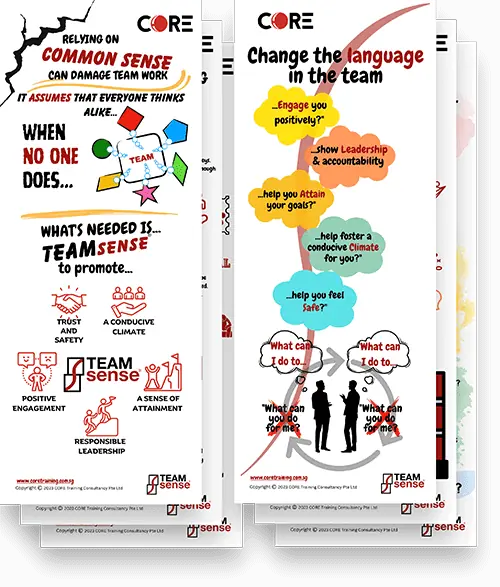While there are numerous advantages to utilising the SkillsFuture Singapore (SSG) grants for training, it is essential to be aware of several drawbacks that may impact your decision-making process.
Understanding these disadvantages will enable you to make informed choices for your organization or team.
Here are 10 drawbacks when you use SSG for your training:
Administrative Burden
The application and management of SSG grants can involve complex administrative requirements, including extensive paperwork and compliance obligations. This can increase the workload for staff responsible for overseeing training programs.
Limited Funding Scope
SSG grants often come with specific restrictions regarding the types of training programs and associated expenses that are eligible for funding. This limitation may reduce the flexibility and scope of training initiatives that organisations can undertake.
‘Ticking the Box’ Mentality
The accessibility and affordability of these grants (such as receiving a 70% subsidy on training fees) may encourage organisations to enrol staff in training merely to fulfil requirements. This practice could lead to selecting programs of little value, ultimately wasting time and resources for both the participants and the organization.
Time and Resource Investment
Developing and implementing training programs that align with SSG grant requirements can demand substantial time, resources, and planning. This challenge may be particularly burdensome for organisations with limited capacity, as some workshops may require up to two full days, totalling approximately 18 hours per session.
Accountability and Reporting
Organisations benefitting from SSG grants are generally required to demonstrate the impact and outcomes of their training programs through evaluation and reporting. This accountability requirement necessitates additional effort and resources.
Dependency on External Funding
Relying on SSG grants for training may foster a dependency on external funding sources. This dependency could become unsustainable if businesses are unable to consistently secure grant support in the future.
Training Program Limitations
SSG grants may impose restrictions on the duration, format, or content of funded training programs. Such limitations can hinder the customisation and flexibility of training initiatives tailored to the organization’s specific needs.
Compliance Requirements
Organisations receiving SSG grants must adhere to various compliance protocols, including audits and monitoring procedures. These requirements can be time-consuming and may necessitate dedicated resources to ensure regulatory adherence.
Evaluation and Measurement Challenges
Demonstrating the effectiveness and impact of training programs funded by SSG grants through robust evaluation and measurement processes can prove challenging, requiring specialised expertise and resources.
Sustainability of Outcomes
While SSG grants may facilitate initial training initiatives, organisations may struggle to sustain the benefits and outcomes of these programs over the long term without ongoing financial support or reinforcement strategies. Oftentimes the new skills gaps that are uncovered may require more customised workshops, that the funding may not cover.
While upgrading and up-skilling staff is a commendable initiative, it is essential to recognise that training represents a long-term commitment. Relying exclusively on SSG grants may lead to challenges if a well-defined training plan is not established and the necessary resources are not allocated to implement it effectively.




